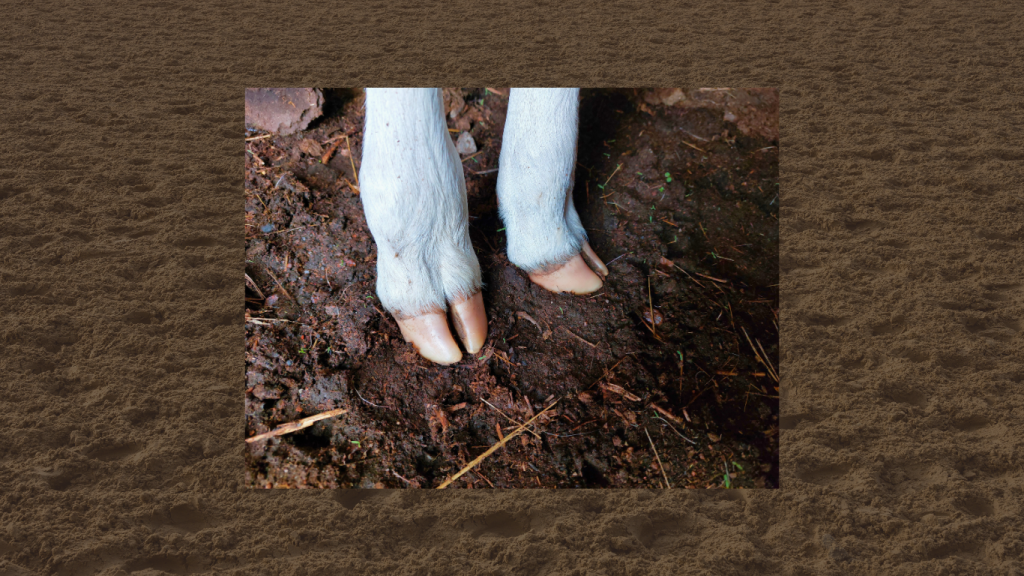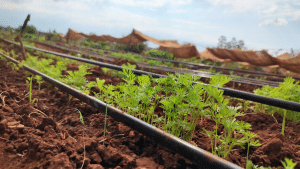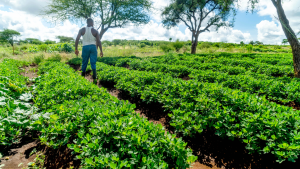
Animal agriculture is a significant driver of climate change, contributing notably to greenhouse gas emissions, deforestation, water and air pollution, and biodiversity loss. The sector is responsible for approximately 16.5% of global anthropogenic greenhouse gas emissions, rivalling the emissions from all global transportation. This impact is mainly due to the methane produced by enteric fermentation in ruminants, such as cows, sheep, and goats, and the nitrous oxide from manure handling.
The industry not only contributes directly through emissions but also indirectly through deforestation and land-use changes. This deforestation leads to significant carbon dioxide emissions and a loss of biodiversity, further exacerbating climate change.
Solutions to Mitigate the Impact
1. Transitioning to Plant-based Diets:
Shifting global dietary patterns towards more plant-centric diets is crucial for reducing the demand for animal-based products. This shift can significantly lower greenhouse gas emissions and reduce the strain on natural resources. Plant-based meats, for instance, are shown to require significantly less water, land, and energy, and produce fewer emissions compared to traditional meat products.
2. Innovative Farming Practices:
Adopting more sustainable farming practices that reduce reliance on synthetic inputs, such as mineral fertilisers, and promoting polyculture over monoculture can also mitigate the impact. These practices not only help in reducing emissions but also support biodiversity and can improve the resilience of food systems against climate change.
3. Public Awareness and Education:
Increasing public awareness about the environmental impact of animal agriculture and the benefits of reducing meat consumption to drive consumer behaviour towards more sustainable choices. Educational campaigns and clear labelling of food products can help consumers make informed decisions.
Integrating Sustainable Animal Agriculture at Ambokili Farm
Ambokili Farm, an organic permaculture initiative in Kenya, demonstrates a transformative approach to integrating animal agriculture into its efforts to combat climate change and enhance ecosystem health. This farm, located near significant wildlife habitats, focuses on creating self-sustaining, biodiverse ecosystems that support both community development and environmental conservation.
How Ambokili Farm Utilises Animal Agriculture Sustainably:
1. Enhancing Soil Health and Biodiversity:
Ambokili Farm aims to employ sustainable grazing practices that mimic natural processes, which help improve soil fertility and structure. These practices not only reduce erosion but also increase the soil’s capacity to sequester carbon, mitigating greenhouse gas emissions. The integration of animals into permaculture systems promotes biodiversity by maintaining natural habitats and encouraging the growth of a variety of plant species.
2. Waste Management and Resource Cycling:
The farm uses manure from livestock as a natural fertiliser, enriching the soil without the need for chemical inputs. This not only reduces the farm’s carbon footprint but also enhances nutrient cycling, leading to more robust plant growth and reduced dependency on synthetic fertilisers.
3. Conservation and Wildlife Protection:
Situated next to Amboseli National Park, Ambokili Farm plays a crucial role in wildlife conservation. The farm’s approach includes habitat development and endangered species reintroduction thus, supporting ecological balance.
4. Community Engagement and Education:
Ambokili Farm actively involves the community in its sustainable agriculture practices. It educates local farmers and community members on the benefits of organic farming and sustainable animal husbandry, spreading knowledge and skills that lead to broader environmental benefits and economic empowerment.
5. Climate Change Mitigation:
Through its practices, Ambokili Farm contributes to climate change mitigation by lowering methane emissions manure management. This approach contrasts sharply with conventional animal agriculture, which is often associated with high methane and nitrous oxide emissions.
Ambokili Farm is an exemplary model of how farms can integrate animals into a permaculture system that benefits the environment, the climate, and the community. By adopting and adapting these practices, more farms globally could reduce their environmental impact and contribute to a more sustainable and resilient food system.
The urgency to address the environmental impacts of animal agriculture is clear. By incorporating these strategies, it is possible to mitigate the sector’s impact on the planet and make substantial progress toward climate goals. Reducing reliance on animal agriculture and shifting towards a more sustainable food system is not only possible but necessary for the health of our planet and future generations.







2 Responses
I’ve been following this blog for years and it’s amazing to see how much it has grown and evolved Congratulations on all your success!
Thank you so much and more coming. Feel free to make enquiries or even suggest something you’d like to see or learn about or even contribute.